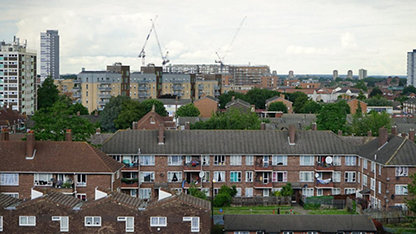The 2021 Hong Kong annual conference could not have taken place at a more relevant time given the themes and topics covered. Exploring the landscape of the surveying profession in a post-COVID-19 era, plenty of thoughtful discussions and key insights were shared. With over 400 registrations, the conference was a popular and well-attended one.
In Chinese, there is a saying: “crisis creates opportunities”. COVID-19 has had a great impact on our social lives and on the economy. We have undergone huge change in a short space of time, adapting to new ways of living through increased flexibility and innovation. The Hong Kong conference covered key themes for surveyors such as knowledge gained through the pandemic, new innovations, strategies and skills that have been developed to cope and, vitally, asked what Hong Kong will look like within the next three to five years.
The discussions during the conference discussed this in depth and from several angles. According to Mr John Kwong Ka Shing, Head of Project Strategy and Governance Office at the Development Bureau, HKSAR Government, the Hong Kong government will continue to push forwards with investment in infrastructure. His opening address focused on infrastructure developments during the pandemic and using new projects to boost economic recovery. The annual capital works expenditure will exceed $100billion in the coming years and the annual total construction output will increase to around $300billion, creating over 300,000 employment opportunities. Although there are positive opportunities for the future, he also drew attention to the upcoming challenges that infrastructure projects in Hong Kong may face, including:
- Significant future construction volumes
- High costs and declining productivity
- Unsatisfactory mega-project performance and a lack of creativity and innovation
- Unsatisfactory site safety performance
Interrelated, the prospects for infrastructure suggest there is also growth in business opportunities. During his session, Stephen Phillips, Director-General of Investment Promotion for the government of the Hong Kong special administrative region, asserted that the top business sectors in Hong Kong are:
- Fintech
- eCommerce, supply chain management and logistics technology
- Professional or consultancy services
- Information technology and data analytics
With more than 600 Fintech companies in the region, there is huge growth in this area. He believes contributing factors to this trend include excellent accessibility, simple and low tax, and the development of a vibrant start-up ecosystem. By adapting to changing needs and innovating in design and structure as technology advances, Hong Kong can strengthen its position and be open to the future.
With more of the world's cities developing smart models to support sustainability agendas, what the built environment should be post-pandemic remains a prominent topic.
Other popular themes were the state of the surveying profession in Hong Kong and opportunities available for young surveyors as well as the future of ESG investment.
Speakers considered new business opportunities in the Greater Bay Area that are developing as well as those coming to the fore in China and APAC generally. The impact of ESG on property valuations and developments in the green market were covered in depth, with key talking points being:
- green financing
- green bonds
- green technology
- energy-saving facilities and logistics
RICS President-Elect, Mr Clement Lau FRICS suggested that "the use of energy in buildings globally is likely to double or even triple by 2050 as millions more people acquire adequate housing and electricity. We will need imaginative planners who can design innovative new solutions and more sustainable materials" and linked the arrival of 5G to potential change in construction. With technology ever evolving, he proposed that there is possibility of remotely controlling equipment on sites, changing the way surveyors work. Additionally, modular construction practices will increase the speed of construction and delivery of new high-quality homes. Young surveyors and those of the future will be working within a different professional landscape to current practice.
“The use of energy in buildings globally is likely to double or even triple by 2050 as millions more people acquire adequate housing and electricity. We will need imaginative planners who can design innovative new solutions and more sustainable materials. ”
Mr Clement Lau FRICS
RICS President-Elect
With over 400 registrations and an array of high-quality sponsors, the conference provided lively conversations and relevant, first-hand insights. Understanding of the Hong Kong property market and of the potential opportunities Proptech offers for the future were discussed and visions of what the profession will be like for young surveyors was explored. From crisis comes opportunity. Delegates to the 2021 Hong Kong annual conference left equipped with the right business intelligence to succeed in the “new normal” and with heightened awareness of developing prospects.
About the author

Kieran Halliwell
Content Creator, RICS















